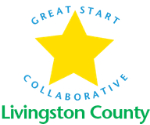
Pregnant? Download the Count The Kicks App
To help reduce infant mortality, the Michigan Department of Health and Human Services (MDHHS) Division of Maternal and Infant Health is partnering with the Count the Kicks app, an evidence-based stillbirth prevention program, to educate expectant parents about the importance of paying attention to their baby’s movements in the third trimester of pregnancy.
“Programs such as Count the Kicks can provide women with tools to speak about their pregnancy experiences with their loved ones and their health care providers,” said Dr. Natasha Bagdasarian, chief medical executive. “Having dialogue around pregnancy symptoms and experiences can sometimes identify early warning signs.”
Research shows a change in a baby’s normal movement pattern is sometimes the first or only indication there may be an issue developing during the pregnancy. Parents will begin to see a pattern of how much time it takes their baby to get to 10 movements after a few days of using the free Count the Kicks app. Information is available in more than 20 languages, as a web-based counting platform or via a paper chart. If their baby’s “normal” amount of kicks changes during the third trimester, this could be a sign of potential problems and is an indication expectant parent should call their health care provider right away.
The MDHHS Division of Maternal and Infant Health is working with maternal health providers, birthing hospitals, social service agencies, childbirth educators and other providers in Michigan to assist them in ordering Count the Kicks educational materials at CountTheKicks.org. Providers can use these resources to help them discuss baby movement patterns with expectant parents. These materials are available in Arabic, English and Spanish. The partnership is another effort to reach the Advancing Healthy Births vision of zero preventable deaths and zero health disparities.
Stillbirth is commonly defined as the loss of a baby at 20 weeks or greater gestation during pregnancy. It is a national public health crisis that impacts more than 21,000 families in the United States each year according to the Centers for Disease Control and Prevention. Approximately 626 Michigan families experience the tragedy of stillbirth each year, and one in every 173 pregnancies ends in stillbirth.
Racial disparities persist, and a disproportionate number of babies are stillborn to Black, Native Hawaiian, or Other Pacific Islander and American Indian or Alaska Native families. While much of the disparity currently remains unexplained, some of the factors that may contribute include differences in preconception health, access to quality health care, as well as stress – factors that are also associated with other poor pregnancy outcomes, such as preterm births.
Research published in BJOG: An International Journal of Obstetrics and Gynecology shows a more than 30% reduction in Iowa’s stillbirth rate in the first 10 years of the state using the Count the Kicks stillbirth prevention program at a time when America’s stillbirth rate remained stagnant.
For more information about the Division of Maternal and Infant Health, please visit Maternal & Infant Health (michigan.gov)




